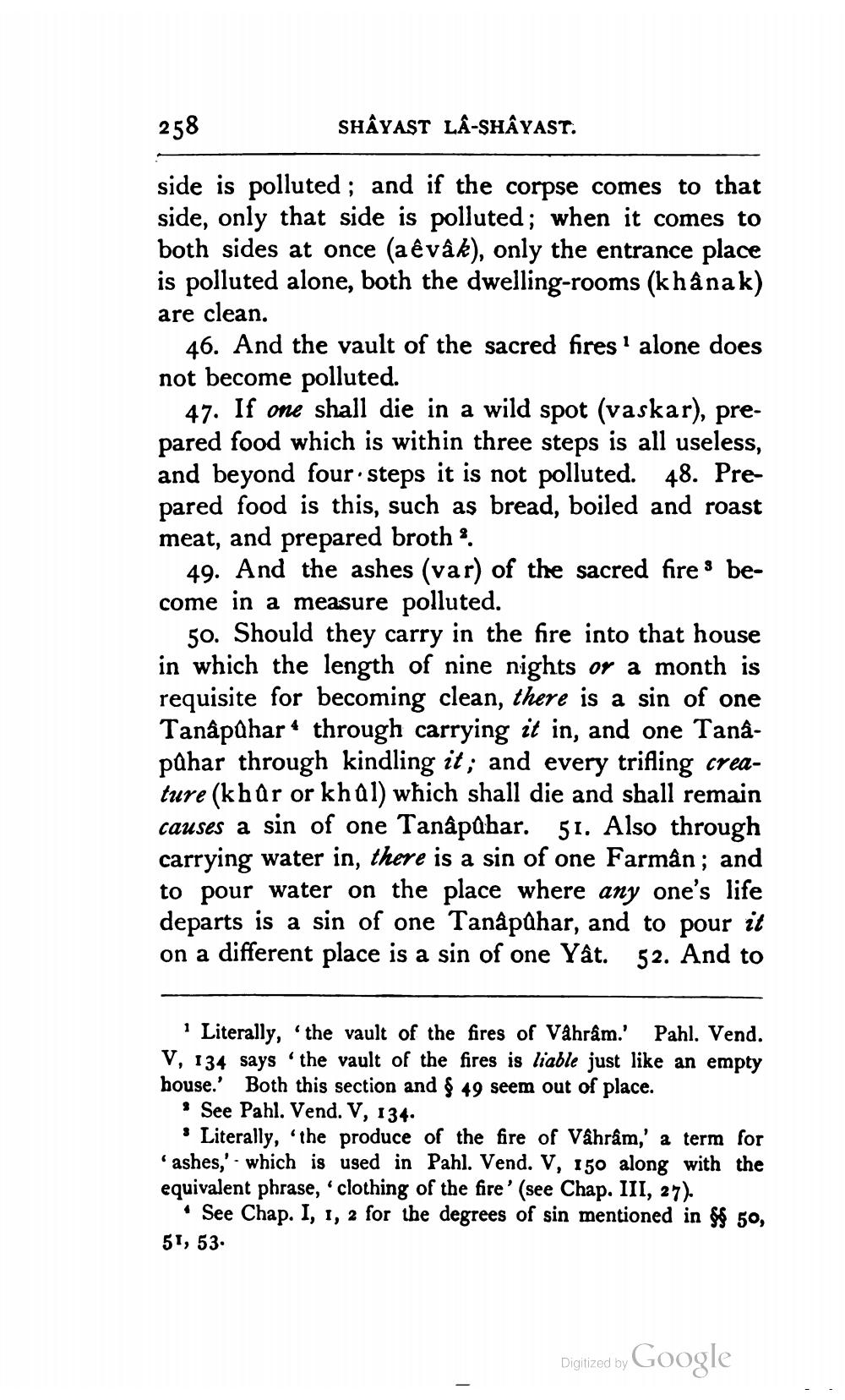________________
258
SHAYAST LÂ-ŞHÂYAST.
side is polluted ; and if the corpse comes to that side, only that side is polluted; when it comes to both sides at once (a êvâk), only the entrance place is polluted alone, both the dwelling-rooms (khânak) are clean.
46. And the vault of the sacred fires : alone does not become polluted.
47. If one shall die in a wild spot (vaskar), prepared food which is within three steps is all useless, and beyond four steps it is not polluted. 48. Prepared food is this, such as bread, boiled and roast meat, and prepared broth.
49. And the ashes (var) of the sacred fires become in a measure polluted.
50. Should they carry in the fire into that house in which the length of nine nights or a month is requisite for becoming clean, there is a sin of one Tanâpahar* through carrying it in, and one Tanâpahar through kindling it; and every trifling creature (k hûr or khal) which shall die and shall remain causes a sin of one Tanâpabar. 51. Also through carrying water in, there is a sin of one Farmân; and to pour water on the place where any one's life departs is a sin of one Tanäpuhar, and to pour it on a different place is a sin of one Yât. 52. And to
* Literally, the vault of the fires of Váhram.' Pahl. Vend. V, 134 says the vault of the fires is liable just like an empty house.' Both this section and $ 49 seem out of place.
See Pahl. Vend. V, 134. : Literally, the produce of the fire of Váhram,' a term for ashes,' - which is used in Pahl. Vend. V, 150 along with the equivalent phrase, clothing of the fire' (see Chap. III, 27).
• See Chap. I, 1, 2 for the degrees of sin mentioned in $$ 50, 51, 53.
Digitized by
Digitized by Google




